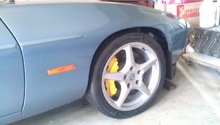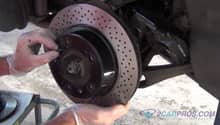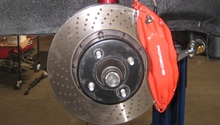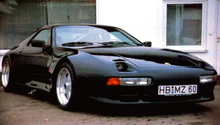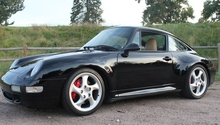Porsche 928: Why are My Brakes Noisy?
It's unavoidable: brakes can and do make a lot of different noises. Look at what can cause a tapping noise, how much of a problem it is, and how to fix it here.
This article applies to the Porsche 928 (1979-1995).
There are many different bad noises that can come from your brakes including squeaks, squeals, grinds, bumps, thumps, and taps. All of them are caused by different things and require different action to make sure your brakes are in good working order. This article covers what could cause tapping noises. A tapping noise can be identified by a rotational rhythmic sound from the hub area. It could increase with wheel speed, or maybe even go away as you go faster. Let's look at what could cause it.

Materials Needed
- Lug wrench and torque wrench
- Basic metric wrenches/sockets
- Flashlight
- Mirror
Pad Vibrations
It's a fact of physics that brake pads are inherently noisy. Take two solid materials, force them together with hundreds of pounds of pressure, add in dirt, grime, and wear, and there is no escaping it. The pads vibrate in the calipers and can make a bunch of different sounds as a result. Occasionally, with just the right amount of friction and just the right amount of brake dust and wear, they can vibrate in just the right way to make a "tap tap tap" sound that matches the wheel speed. This one is an easy fix: if the brake pads are ready to be replaced, simply do a brake job (or get it done) and the sound should go away. If the pads are still good, remove them and apply some silicone or grease to the backing plate where it touches the pistons. This will quiet things down.
(Related Article: Porsche 928: How to Replace Brake Pads/Calipers/Rotors - Rennlist.com)

Missing Hardware
Automotive brake pads are machined to fit into the calipers somewhat loosely, which helps out with installation and reduces the amount of vibration that is transferred into the chassis. To take up this extra space, small springs are put in place to hold the pad tightly in position. On an older car like the 928, they could go missing for one reason or another over the years. With several millimeters of slop, at certain rotating speeds there can be just the right amount of friction for the pad to get lifted up and dropped over and over inside the caliper. While not dangerous, this will result in a constant tapping sound that won't go away until the springs are replaced.
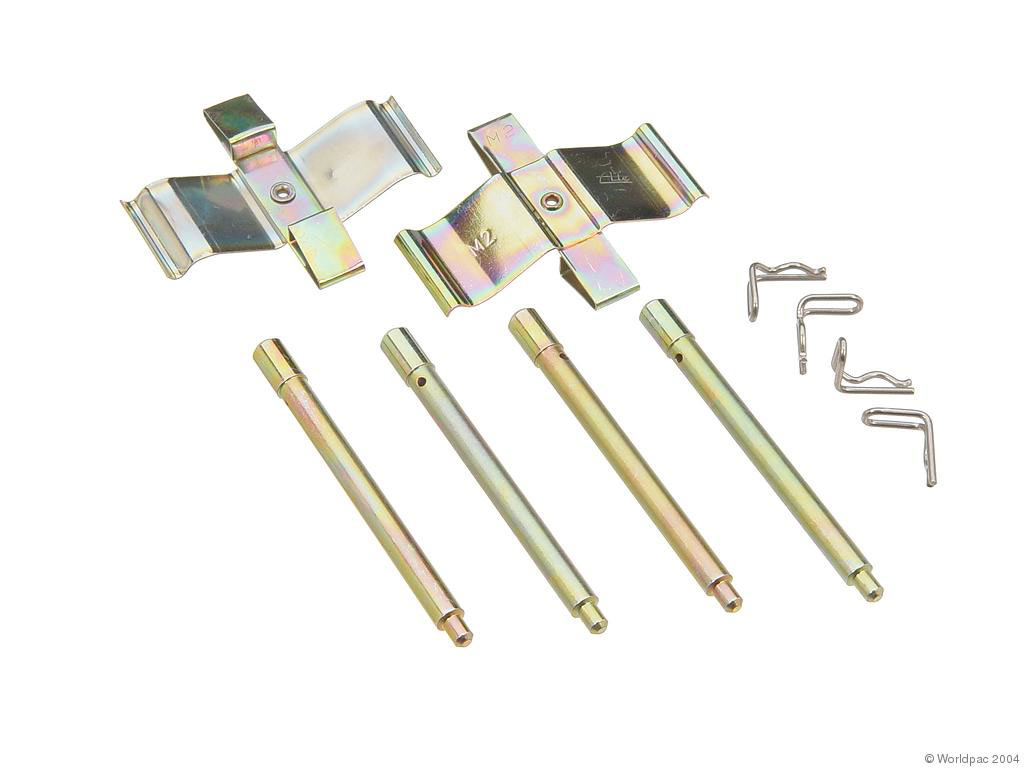
Cracked Rotors
Your rotors stand up to a lot of heat and abuse, but occasionally they can literally crack under the pressure. This might sound like a dull "thump thump thump" while driving, and it will be speed-dependent. These cracks can be difficult to see and sometimes just look like a line of pad deposits spanning the radius of the rotor. In more serious cases, you can see an actual split that runs through to the back. To check for a crack, remove the wheel and get up close to the rotor with a flashlight. You will need to check both sides, so a mirror might be helpful. Make sure to spin the rotor to get a look at the parts that are covered by the caliper and pads.
If you find a crack, get the rotors changed as quickly as possible. In some cases, a crack can cause the entire rotor to shatter while you are applying the brakes and need them most.

Related Discussions
- Tapping Noise After Brake Job - Rennlist.com
- 928 Brake F.A.Q. - Rennlist.com
- 928 Brakes Clank - Rennlist.com
- Brake Squeal - Rennlist.com

